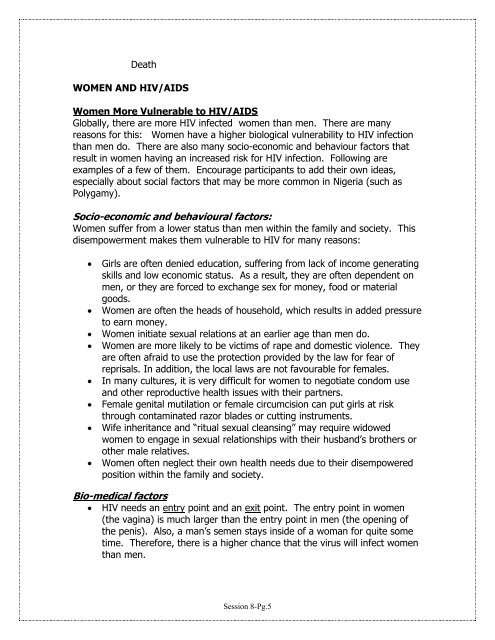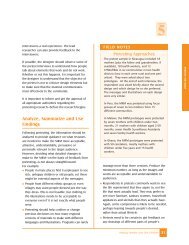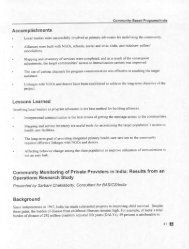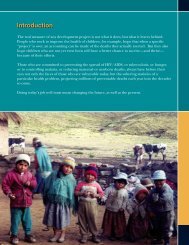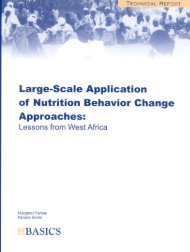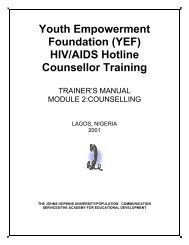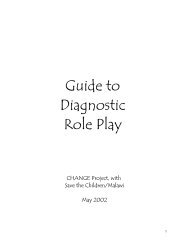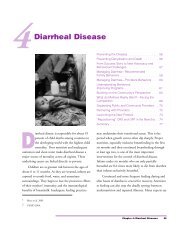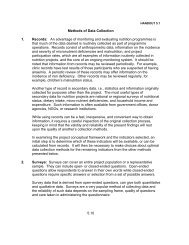MODULE TWO: COUNSELLING - FHI 360 Center for Global Health ...
MODULE TWO: COUNSELLING - FHI 360 Center for Global Health ...
MODULE TWO: COUNSELLING - FHI 360 Center for Global Health ...
You also want an ePaper? Increase the reach of your titles
YUMPU automatically turns print PDFs into web optimized ePapers that Google loves.
Death<br />
WOMEN AND HIV/AIDS<br />
Women More Vulnerable to HIV/AIDS<br />
<strong>Global</strong>ly, there are more HIV infected women than men. There are many<br />
reasons <strong>for</strong> this: Women have a higher biological vulnerability to HIV infection<br />
than men do. There are also many socio-economic and behaviour factors that<br />
result in women having an increased risk <strong>for</strong> HIV infection. Following are<br />
examples of a few of them. Encourage participants to add their own ideas,<br />
especially about social factors that may be more common in Nigeria (such as<br />
Polygamy).<br />
Socio-economic and behavioural factors:<br />
Women suffer from a lower status than men within the family and society. This<br />
disempowerment makes them vulnerable to HIV <strong>for</strong> many reasons:<br />
• Girls are often denied education, suffering from lack of income generating<br />
skills and low economic status. As a result, they are often dependent on<br />
men, or they are <strong>for</strong>ced to exchange sex <strong>for</strong> money, food or material<br />
goods.<br />
• Women are often the heads of household, which results in added pressure<br />
to earn money.<br />
• Women initiate sexual relations at an earlier age than men do.<br />
• Women are more likely to be victims of rape and domestic violence. They<br />
are often afraid to use the protection provided by the law <strong>for</strong> fear of<br />
reprisals. In addition, the local laws are not favourable <strong>for</strong> females.<br />
• In many cultures, it is very difficult <strong>for</strong> women to negotiate condom use<br />
and other reproductive health issues with their partners.<br />
• Female genital mutilation or female circumcision can put girls at risk<br />
through contaminated razor blades or cutting instruments.<br />
• Wife inheritance and “ritual sexual cleansing” may require widowed<br />
women to engage in sexual relationships with their husband’s brothers or<br />
other male relatives.<br />
• Women often neglect their own health needs due to their disempowered<br />
position within the family and society.<br />
Bio-medical factors<br />
• HIV needs an entry point and an exit point. The entry point in women<br />
(the vagina) is much larger than the entry point in men (the opening of<br />
the penis). Also, a man’s semen stays inside of a woman <strong>for</strong> quite some<br />
time. There<strong>for</strong>e, there is a higher chance that the virus will infect women<br />
than men.<br />
Session 8-Pg.5


